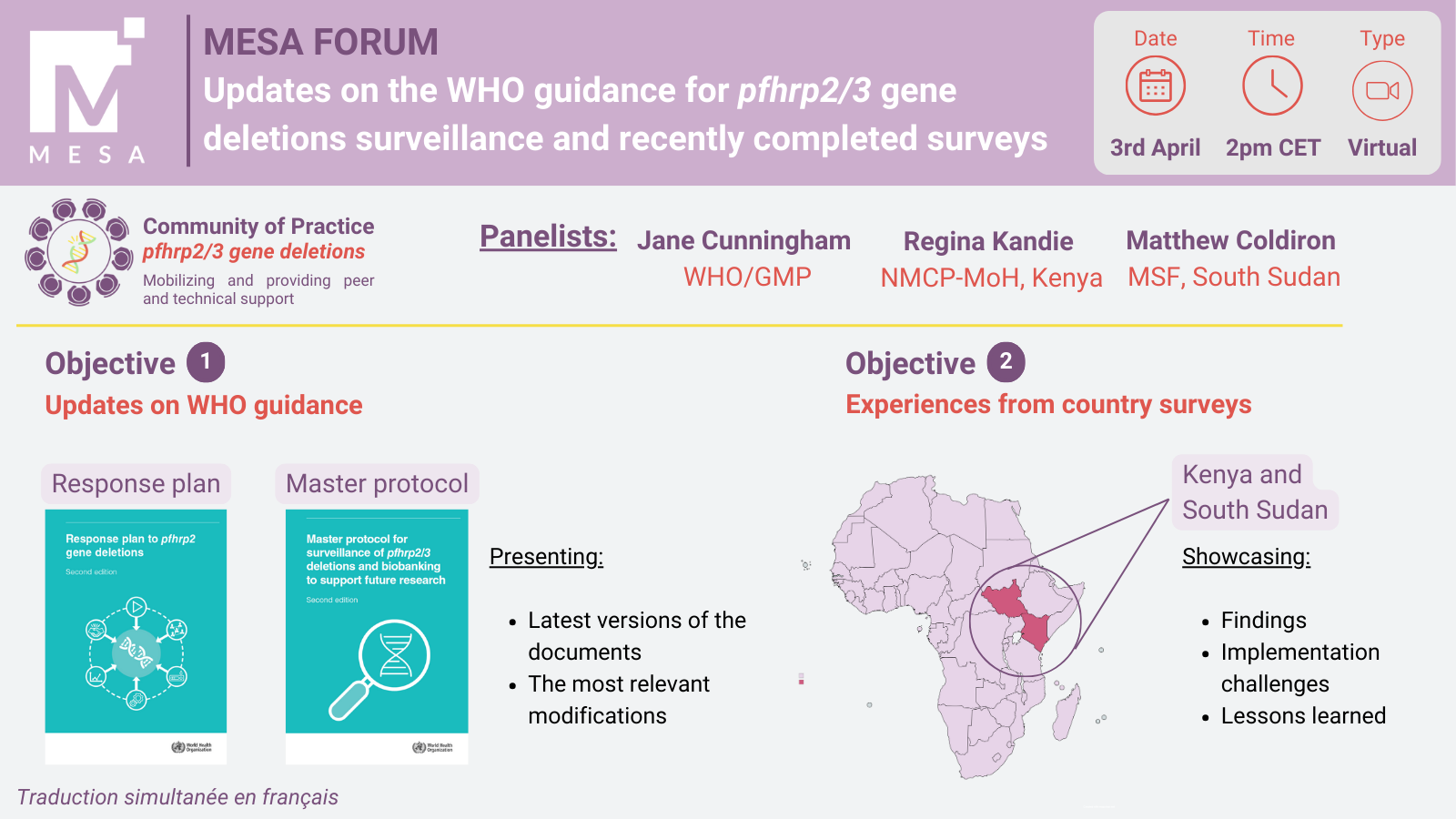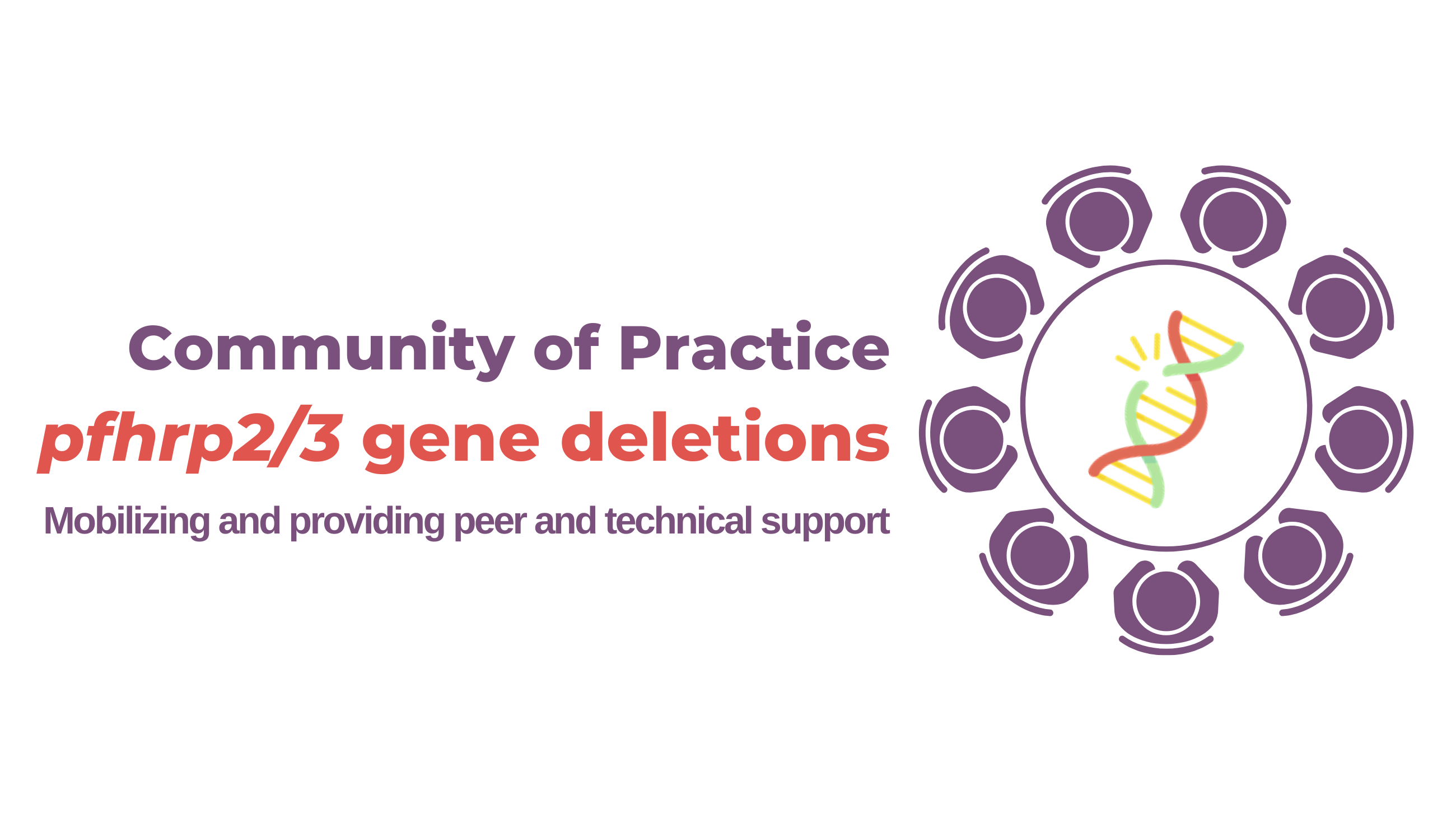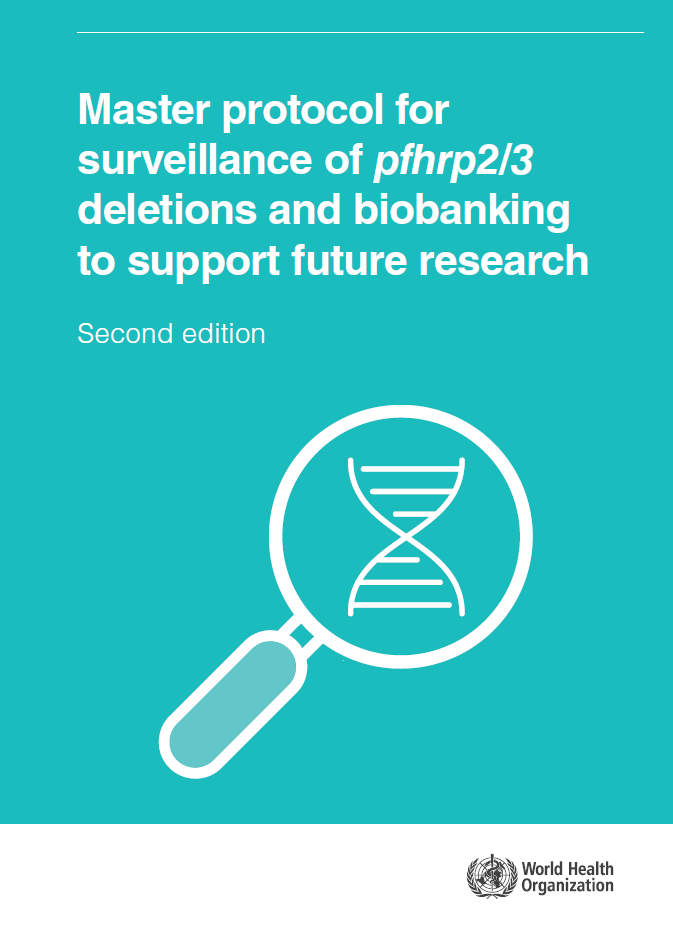Last Updated: 04/07/2025
GenMoz 2: Malaria molecular surveillance in Mozambique
Objectives
The goal of this project is to use malaria molecular surveillance (MMS) to optimize the public health benefits of the National Malaria Control Program (NMCP) 2023-2030 strategy in Mozambique.
The specific aims are:
- Real-time tracking of biological threats to ongoing NMCP strategies, including diagnostic failures due to pfhrp2/3 deletions or non-falciparum infections, and assessment of molecular markers of first-line artemisinin-based combination therapies (ACT) resistance, supported by results from therapeutic efficacy studies (TES). It will also characterize transmission sources at local and national levels through genetic classification of cases in low transmission districts, and establish vector molecular surveillance (VMS) capacity for more accurate speciation of Anopheline population in Mozambique.
- Develop tools to guide decision-making on emerging threats to antimalarial approaches planned for use in Mozambique, including parasite resistance to chemopreventive drugs, vaccine escape, and monitoring of intervention-driven changes in transmission using metrics of parasite genetic diversity.
- Increase production and uptake of MMS indicators for informing decision making through the strengthening of analytical & interpretative capacities.
Mozambique is among the ten countries with the highest burden of malaria worldwide, with an estimated 10.4 million cases in 2022. Malaria transmission is highly heterogeneous across the country, with a high burden in the north and a very low burden in the south, therefore requiring different strategies for effective control and potential elimination. The GenMoz project (NCT05306067, March 2021-Feb 2024) has operationalized a functional malaria molecular surveillance (MMS) system based on targeted amplicon sequencing to generate reliable and reproducible genomic data and build technical capacities in the country. These efforts allowed us to:
– Detect and monitor parasitological resistance to antimalarial drugs and rapid diagnostic tests (RDTs).
– Analyze malaria transmission patterns to identify hotspots and distinguish between local and imported cases.
– Assess how genetic diversity in P. falciparum informs on transmission and intervention effectivenes.
– Use P. falciparum genetic surveillance into antenatal care (ANC) clinics to demonstrate the value of cost-effective surveillance approaches.
The National Malaria Control Program (NMCP) is starting a new strategic cycle (2023-2030) with a plan that includes genomic surveillance to guide programmatic decisions on six key malaria control tools: 1) Malaria diagnostics using histidine-rich protein 2 (HRP2)-based RDTs; 2) Treatment with ACTs, including diversification schemes to reduce the emergence of resistance; 3) Chemoprevention for pregnant women and children; 4) R21/Matrix-M vaccine rollout; 5) Individual-level interventions in very low transmission settings; and 6) Vector control.
In this phase 2 (NCT06529237, 2024-207), the aim is to integrate MMS into this broader surveillance framework and scale up MMS in Mozambique for quality, timely and appropriate optimization of the public health benefits of the NMCP 2023-2030 strategy in both a proactive and adaptive manner.
Capacity Building
Diagnostics
Drug Resistance
Genetics and Genomics
Health Systems
Leadership & Governance
Surveillance
Vector Control
Mar 2024 — Feb 2027
$7M


